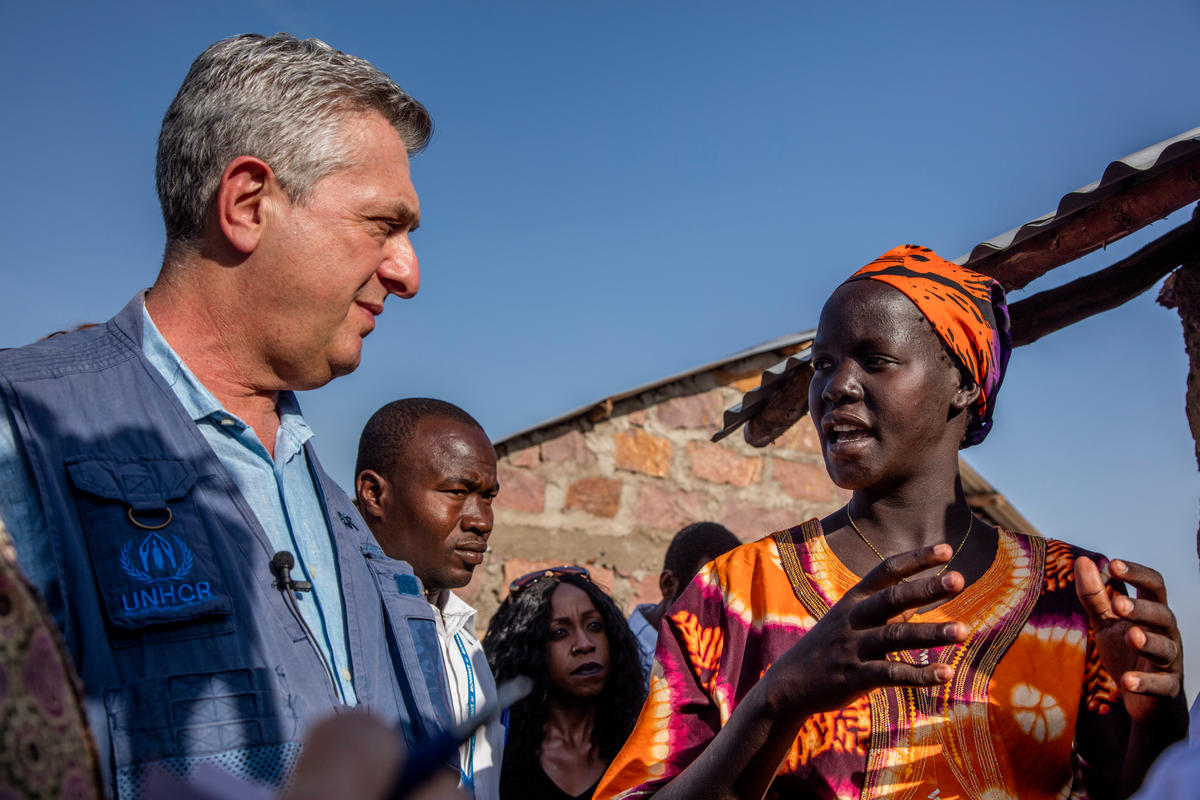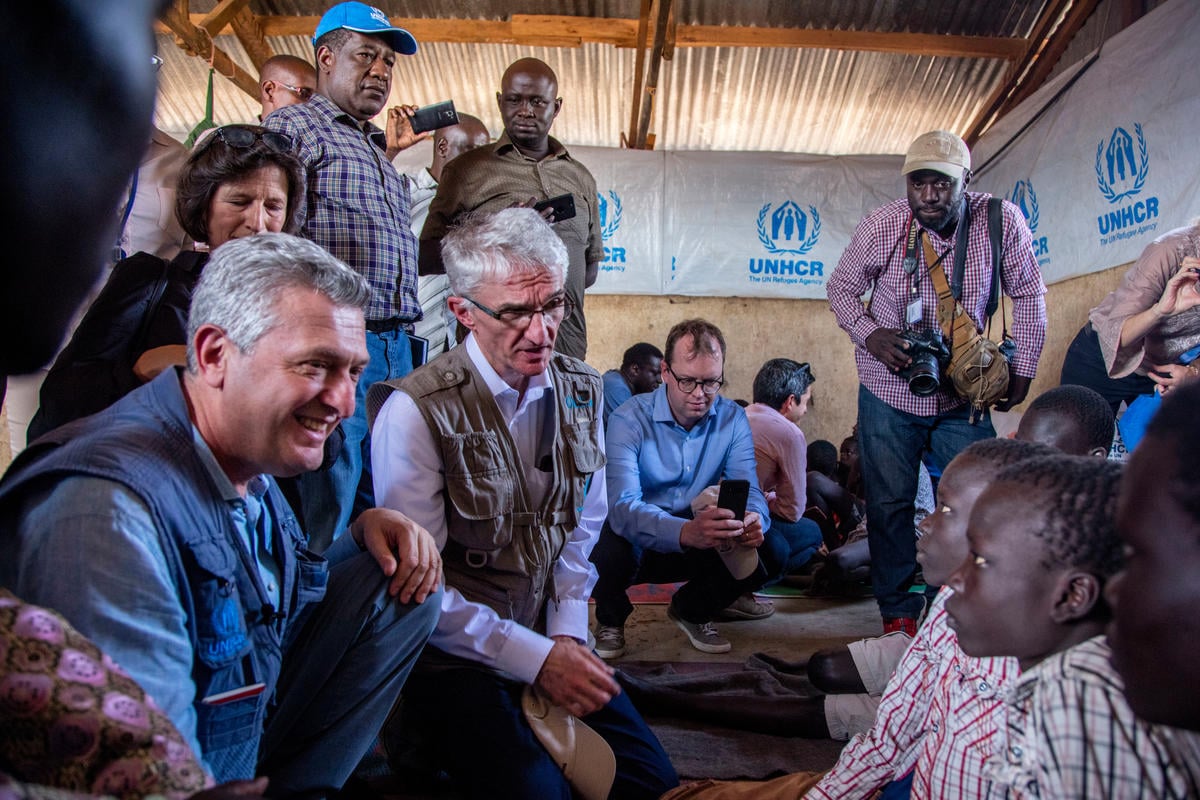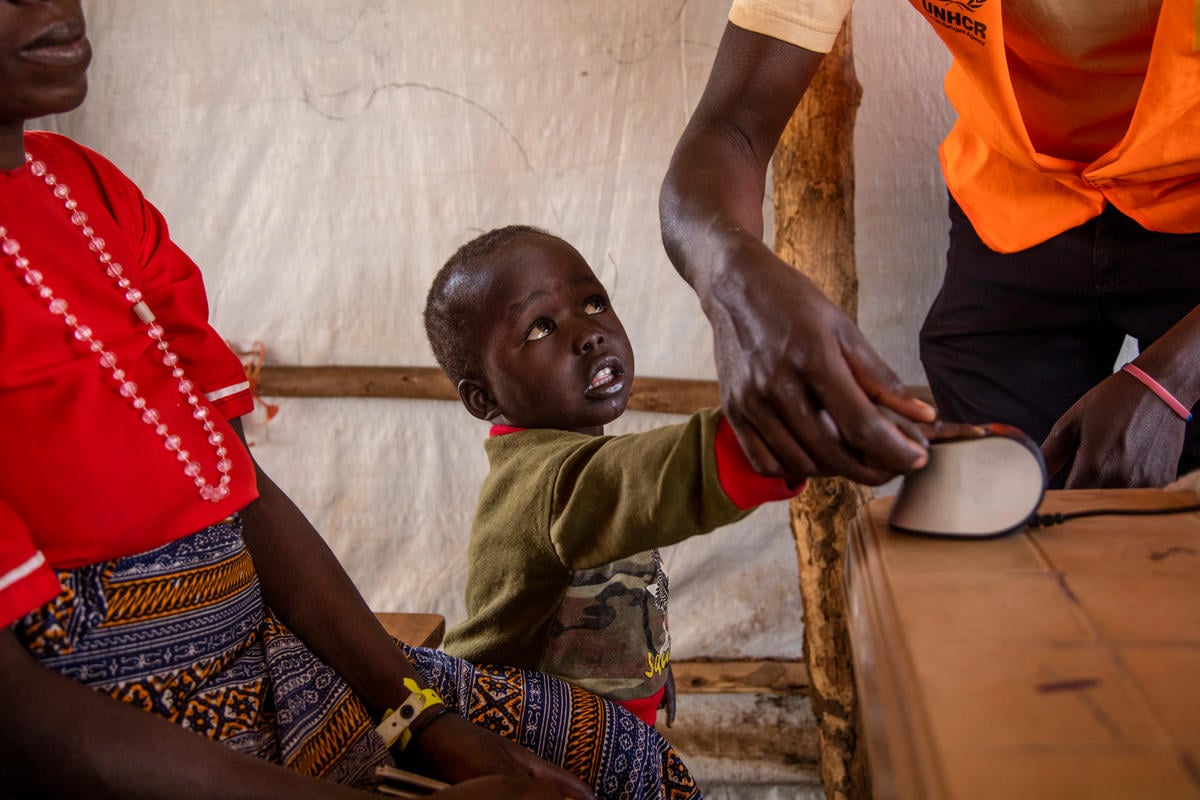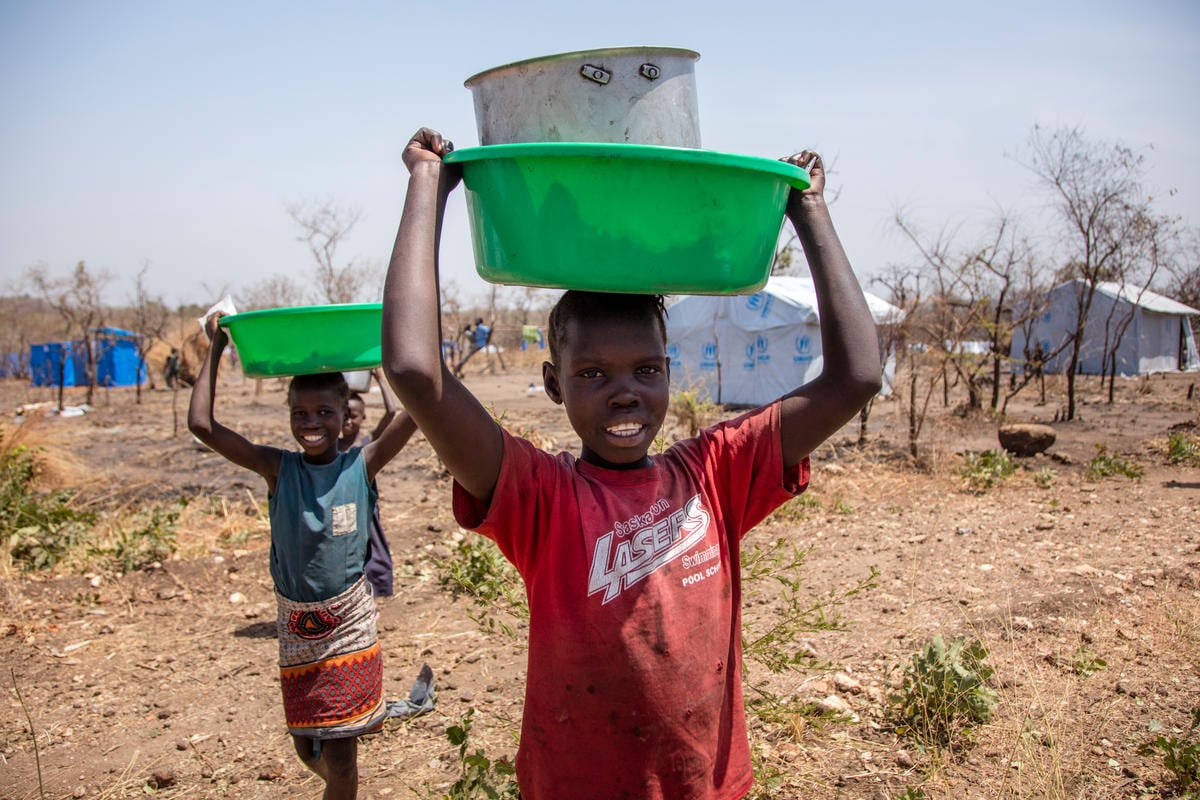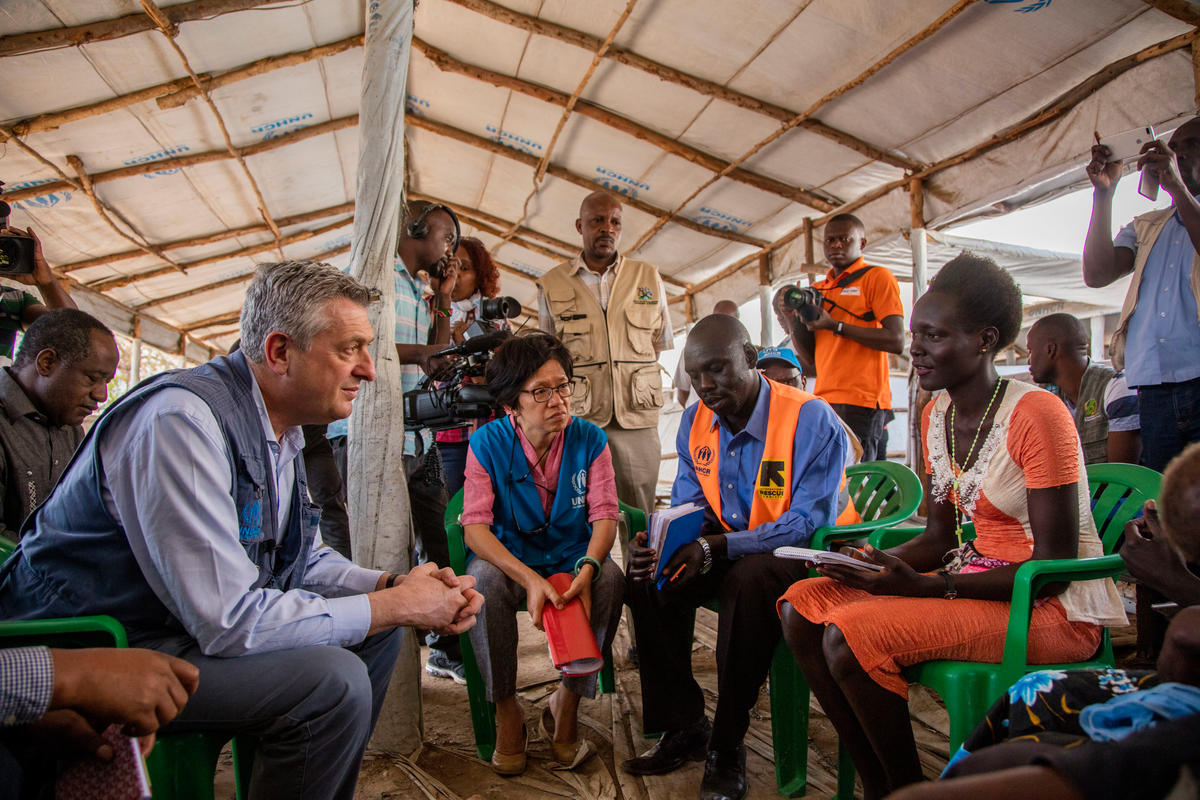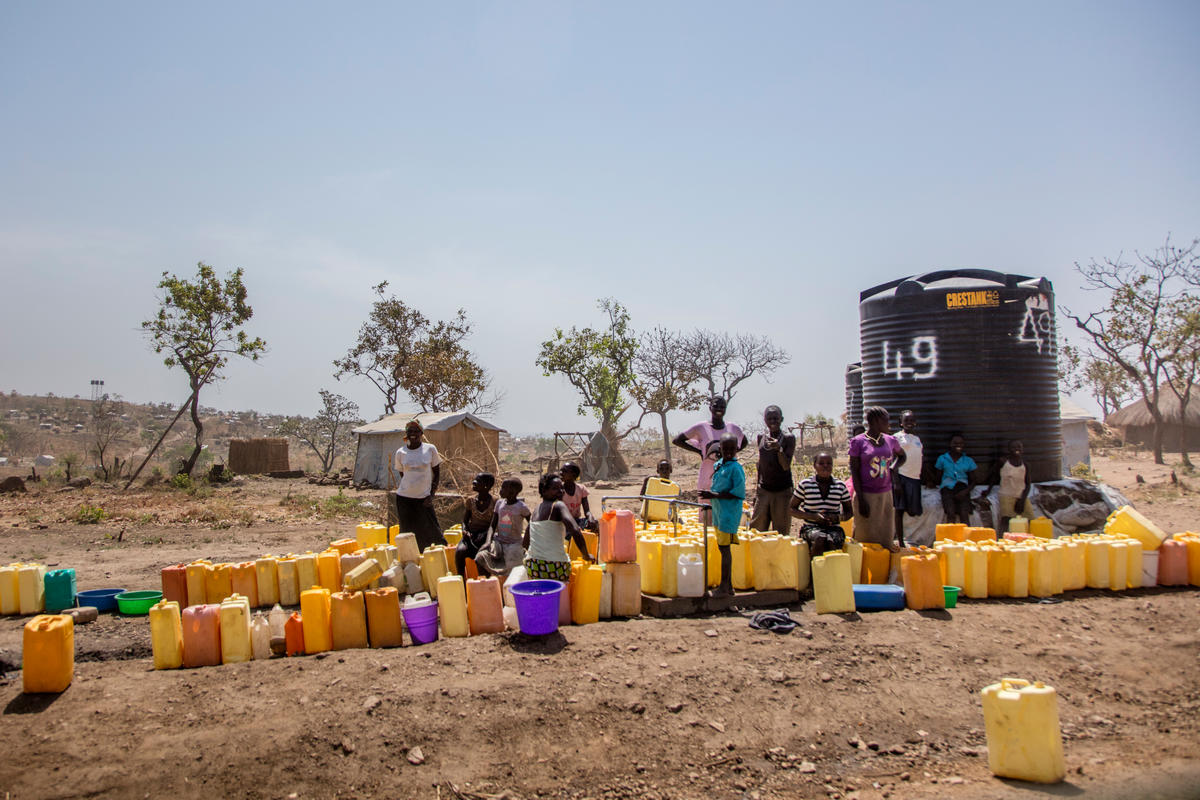Grandi says South Sudan's leaders must restore peace and hope to 'broken' people
Grandi says South Sudan's leaders must restore peace and hope to 'broken' people

KAKUMA, Kenya – The day the lives of 14-year-old twins Jacob and Simon Lino changed forever is still too fresh for them to fully comprehend.
With tears rolling down their cheeks, they recounted how last December armed men shot and killed their elder brother and father as the family escaped fighting in South Sudan’s capital, Juba.
“There was a lot of shooting and shouting, they told us to go on ahead… They went back to try and stop them chasing us, but the men shot and killed them,” Simon recounted.
The two brothers were seated with five other siblings and their mother, Adut Akot Ker, on the floor of UNHCR’s registration centre in Kakuma refugee camp, in northern Kenya, waiting to be given temporary housing and aid facilities.
"We want shoes," say barefoot twins.
Here, they met UN High Commissioner for Refugees Filippo Grandi, who spent this week (Jan 28-Feb 01) in Uganda and Kenya to witness at first hand the consequences of five years of conflict in the country. They explained how they had walked barefoot for 21 days to reach Kenya, tearfully showing swollen and cut feet.
“We are hungry and tired, but the feet are getting better. We want shoes,” Jacob quietly told the High Commissioner, who was visibly moved by their story. He reassured them they would receive new shoes soon and be able to attend school – another thing they said they were now missing the most from home.
“They are still in trauma, like so many others here, you can it see in their faces,” Grandi told UNHCR. “People are losing hope, despair is taking root… failure of the latest cessation of hostilities has taken a toll on the morale of the South Sudanese. People speak with a sense of despair. This is the worst loss – the loss of hope in their future.”
South Sudan is the fastest-growing and largest refugee crisis in Africa, with almost 2.5 million refugees in the six surrounding countries – Central African Republic, the Democratic Republic of the Congo, Ethiopia, Kenya, Sudan and Uganda – and the figure is expected to rise to three million if fighting does not stop soon.
A recurring theme of Grandi’s visit to the region was the need for South Sudan’s leaders to make peace and allow their people to return home.
“Political leaders must assume their responsibility and deliver peace, these are their people – they want peace,” he said.
Kakuma currently hosts 186,000 refugees – the vast majority from South Sudan. More are arriving every day. In some districts of northern Uganda on the border with South Sudan, such as Yumbe, one in every second person is now a refugee.
Conflict "purging" South Sudan of its people.
“The human cost of the conflict has reached epic proportions. The conflict is purging South Sudan of the people who should be the greatest resource of a young nation. They should be building the country, not fleeing it,” Grandi added.
On Thursday in Nairobi, Grandi, and the UN’s Emergency Relief Coordinator Mark Lowcock, jointly launched a funding appeal for US$1.5 billion to support refugees fleeing the worsening humanitarian situation in the country and for US$1.7 billion for people in need in the country during 2018.
“Please, all of you that can afford it, please give. The figures are – $3.2 billion. This is the cost of war. And the human cost is much bigger,” Grandi said at a press conference in Nairobi.
Grandi explained the funds would also go towards helping host communities with infrastructure investment to support the refugee influx.
“Refugees are the result of a tragedy, but they can become actors of development for themselves and host communities,” Grandi said.
This “whole of society” approach forms the basis of UNHCR’s recently adopted strategy, also known as the Comprehensive Refugee Response Framework (CRRF), aimed at fostering infrastructure investment in communities hosting refugees in exchange for policies that integrate refugees and allow adults to pursue work and children to join local schools.
"These facilities will remain and be available for local people."
Under this policy facilities, such as health clinics, new roads, schools and water wells, set up to support the refugee presence are available to local communities. In Kakuma, the High Commissioner visited Kalobeyei settlement, where UNHCR has funded the construction of 304 “dignified” permanent shelters for new arrivals and two primary schools. These shelters will also be made available to 10 per cent of the local community. An economic zone is also under development as well as an agricultural project.
“Hopefully one day the refugees will return but these facilities will remain and be available for local people,” Grandi said.
In Uganda, refugees often receive a parcel of land and are able to work and mix freely with local people, as well as access local services like health, education and justice. The High Commissioner praised Uganda for having some of the most progressive refugee policies in the world, but also noted the overwhelming majority of refugees still wanted to return home when the guns fall silent.
He was particularly moved by the story of one man of his own age who told him how he had been a refugee four times in his life.
“Four times! This is not right, this must end. It must stop… These people all want to go home… I would once appeal to the leadership in South Sudan ‘Please make peace,'” Grandi said.



